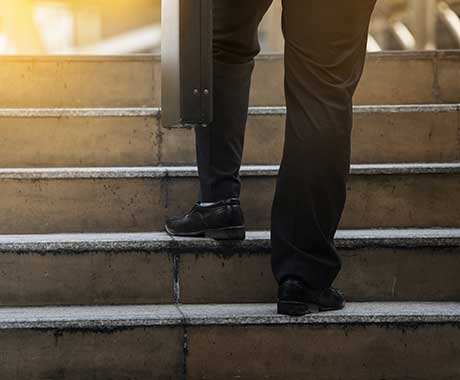Story Highlights
- Charting the customer journey couldn't be more important
- Customer-centric airlines will openly address health concerns
- Airlines should collaborate to meet customer needs
Gallup's recent study on the U.S. travel industry shows more bad news -- on top of six months of losses -- for airlines, one of the hardest-hit industries during the pandemic. The study finds that 68% of respondents don't plan on air travel at all in the next six months, and most are very or moderately concerned about coronavirus exposure in airports (77%) and airplanes (82%).
But that's not the only news. Gallup's study also finds that meeting airline customers' demands for safety -- visibly, consistently and credibly -- can bring customers back. To succeed, travel industry leaders need to think like travelers, consider the whole trip and confront customer concerns head-on.
- Show your commitment to prioritizing customers' health. Being with too many people too close together is unnerving for a lot of customers right now. Diminish their concerns by showing them that you take exposure seriously: Do temperature checks publicly, require face coverings for staff and travelers, and make it easy to maintain social distancing wherever possible.
- Enable passengers to control their environment. Only about a fifth of respondents strongly agree that following airport or airline health policies will keep them safe. So help them keep themselves safe with easily accessible hand sanitizer and sanitizing wipes, touchless equipment, and as little contact with airline or airport employees as possible. Staff should actively support wearing masks and maintaining social distancing to reinforce your commitment to prioritizing customers' health.
- Explain your safety protocols at length. The HEPA filters in commercial airplanes -- the same type recommended by the CDC for use in isolation rooms with recirculated air -- remove nearly 100% of airborne particles and filter air much more efficiently than HVAC systems in buildings do. Your customers probably don't know that. Tell them so (along with all the systems and protocols that have kept people safe for decades) on your website, in confirmation texts and emails, through your loyalty program, and in advertising campaigns.
Collaboration is crucial.
To think like a traveler, the industry must journey map -- far more literally than most -- the customer experience. That journey always starts in airports, which airline leaders can't control: The U.S. aviation system includes over 5,000 commercial airports, and all but one are owned by a local, state or government agency (whereas about 40% of European airports are privately owned).
However, airport revenues depend on airline customers, and their safety is a public health issue. Airlines and airports have a real incentive to collaborate on the measures that the Gallup study shows matter most.
To succeed, travel industry leaders need to think like travelers, consider the whole trip and confront customer concerns head-on.
When the pandemic is over, that collaboration will continue to pay dividends. The equipment that provides touchless services will increase efficiency. The clean environment will secure a healthier workplace for staff and a healthier journey for travelers. And leveraging the right data analytics and the right tactics based on these insights can drastically improve customer engagement.
Those investments in the customer experience will pay off in reputation -- and reputation has a powerful impact on consumers' choices.
Now is the optimal time.
Gallup's study suggests that now may be the best time to start. Sure, people are nervous about flying -- 60% of respondents say they're very concerned -- but as restrictions ease, travel becomes more attractive.
Businesspeople in particular indicate that they're ready to resume traveling. Two-thirds of respondents who are employed full time agree that "observing the day-to-day interactions and work environment of clients' businesses helps me do my job better" -- implying that being present and on-site improves their performance. Just as many say that "observing the day-to-day interactions and work environment of my businesses' other locations helps me do my job better." The data on virtual meetings suggest that for building and maintaining relationships at work, in-person meetings are perceived as more effective because they allow for a more human experience of social interactions.
And among the 8% of respondents who say they aren't concerned about flying at all, 81% plan to travel by air in the next six months.
Still, as long as airline customers are at least somewhat worried about catching COVID-19, cleanliness and safety are the new "five-star" experience.
Provide that kind of customer experience -- a sensitive, informed, standardized experience that centers on what customers value -- and far more of them will be comfortable venturing back into the air.
Bring your customers back:
- Download our guide to customer-centricity. Use our insights to bolster your strategy.
- Learn what customers truly want with our new forecasting model. Register for our on-demand webinar.
- Discover our customer-centricity framework.





